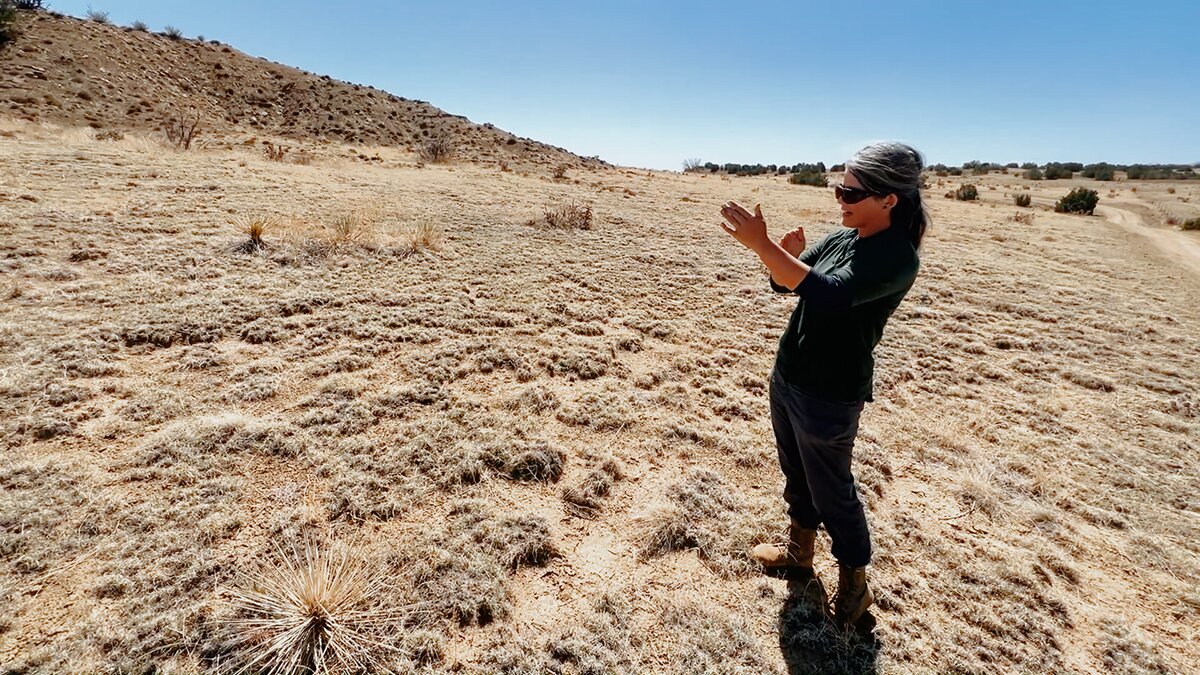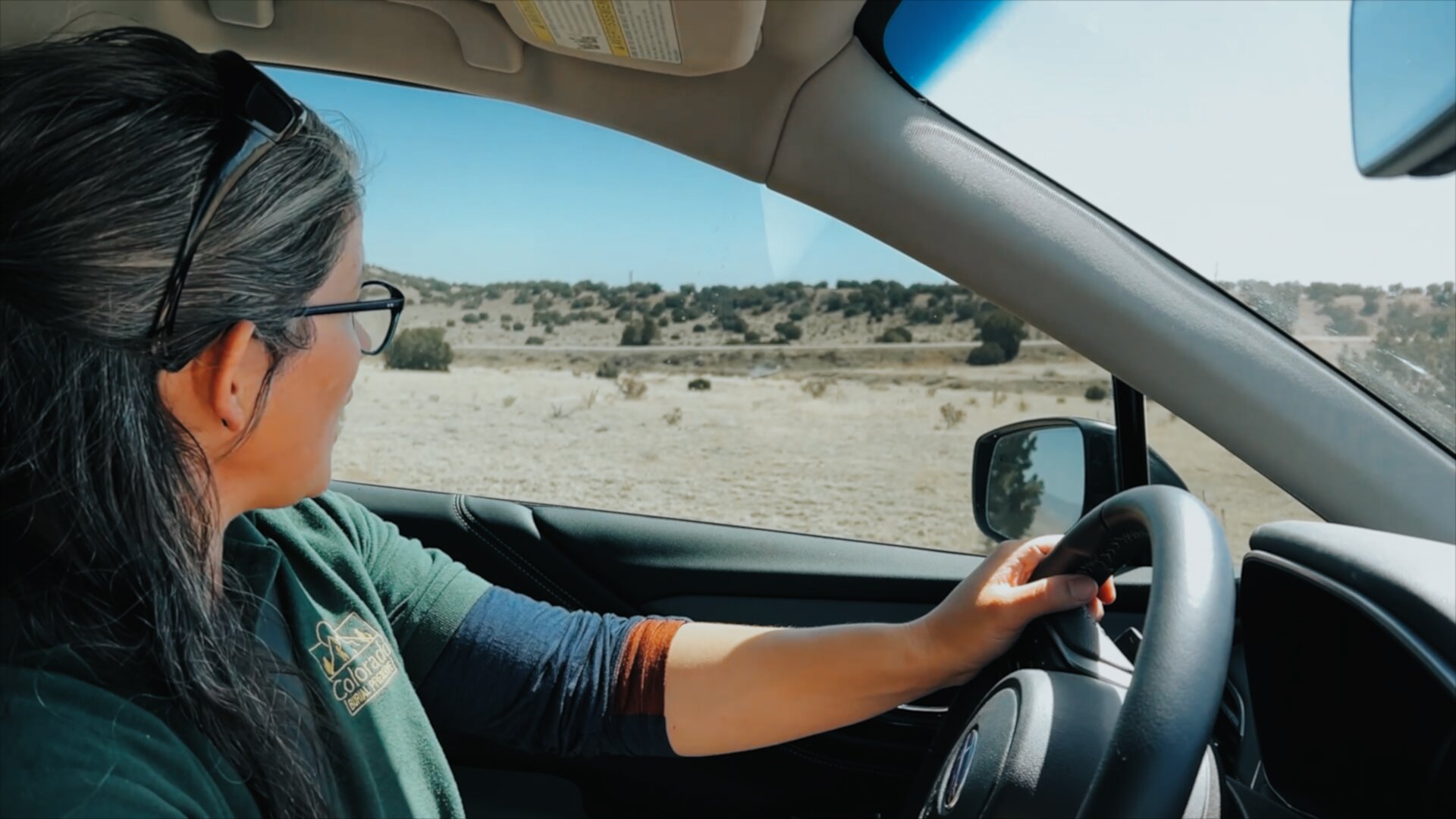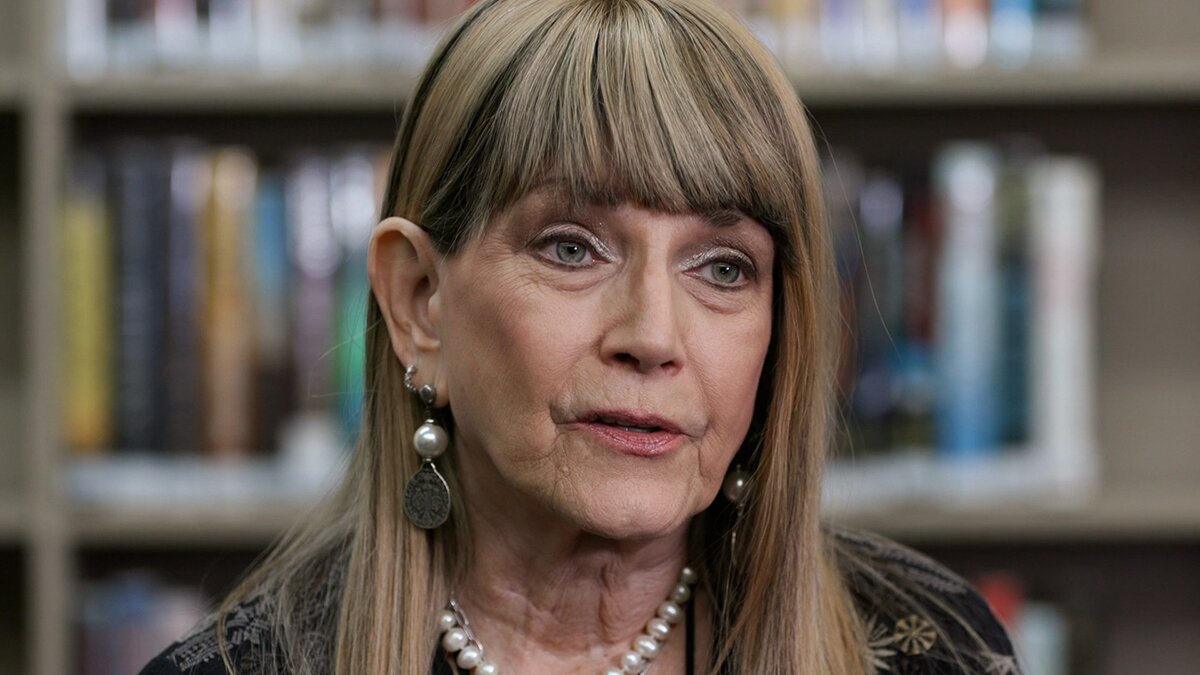Colorado’s first dedicated 'green cemetery' helps people return to the earth once they’ve passed

FLORENCE, Colo. — When we die, Emily Miller believes in returning to the natural cycles in which we came from.
“You hear it in the phrase ‘ashes to ashes, dust to dust,’” said Miller, the owner and founder of the Colorado Burial Preserve. “So, I think the promise of a final resting place in a beautiful, natural location is an easy one to connect with emotionally.”
About 100 miles south of Denver, a 65-acre plot of land is home to Colorado’s first dedicated green cemetery. Instead of rows of tombstones, the former range and livestock ranch is blanketed by prairie grasses and wildflowers, with juniper and pinyon trees peppering the landscape. Local fauna such as deer and birds can be found in the area, grazing, nesting and finding their place in this swath of land where the Great Plains meet the Rocky Mountains.
“When you close your eyes and think of a beautiful place, you may think of a peaceful meadow with tall wildflowers … where things are left to grow and decay at their own pace,” said Miller.
Through Miller’s work, individuals can choose to become part of the natural landscape — laid to rest and able to decay naturally. Natural burials, which offer a way for individuals to return to those natural cycles without any unnecessary elements, focuses on reducing the pollution caused by the waste and chemicals often associated with modern burials.
[Related: Colorado business offers 'water cremation,' a greener alternative to the end-of-life process]
Clients can choose to be buried completely naturally or wrapped in a biodegradable cloth or in a plain wooden box. The process omits embalming fluids and lacquered coffins typically used in funeral homes.

Miller opened the Colorado Burial Preserve about a year ago. She was inspired to explore the business when, at a former job in the funeral industry, a family came in seeking natural burial options for their father. Miller found that there were limited option for being laid to rest in a wild and natural area in Colorado.
“I was really hoping that I would be able to give them options that would ease the pain of their suffering by knowing that they had fulfilled their dad's wishes…and that’s how the Colorado Burial Preserve was born,” Miller said.
Miller also understands that burials are not one-size-fits-all. Barbara Clark, for example, was inspired to find an alternative to the typical end-of-life options for herself after her mom’s passing.
“It’s just something that I really believe in,” Clark told Rocky Mountain PBS. “I think we’ve done enough to damage this earth, our home, in other ways … why keep doing it?”
Clark found the Colorado Burial Preserve through a Google search and was excited the option was so close to her home in Florence. After visiting the property, she confirmed her wishes and began working with Miller to choose a plot on the land.

Miller seeks to offer this option to families and individuals who want it, but she’s also seeking to change the way American culture addresses death overall. She pointed out that especially due to the pandemic, death is often seen as something taboo that happens behind closed doors, when in reality, the preparation of a body for burial and the ceremony of a funeral are practices that should be comforting to those left behind by the deceased.
“I have spent a lot of time around other people's remains, and the one thing that's always been clear to me is the person is not there anymore — once life has gone out of them, it can look like the person, but they are not there,” she said. “The primary thing is taking care of the people who were left behind.”
Part of taking care of those left behind, Miller said, is using the burial preserve as a way to guarantee wild and natural landscapes for future generations to enjoy. Colorado Burial Preserve does this by not only offering a natural location for burial, but by also working towards conservation, including managing invasive species, promoting biodiversity and treating the land as a wildlife habitat.

In the coming months, Miller is working to creating hiking trails through the preserve, a welcome center where she can consult with clients and a small amphitheater where services can be held.
This work is important for Miller, as many people in the death industry, she said, are not motivated to offer natural burials because of the classic revenue streams from expensive metal caskets, concrete tombs and embalming costs. This means that natural burial isn’t particularly profitable for larger companies who often push for families to choose more expensive options. But for Miller, natural burial isn’t just a business; it’s about offering individuals a chance to return to the earth in as natural a way as possible.
“I think nature is an incredible teacher and that we can do better in our daily lives and in our relationship with the planet and climate, if we listen to her lessons,” Miller said.
Alexis Kikoen is a senior producer at Rocky Mountain PBS. You can reach her at alexiskikoen@rmpbs.org.